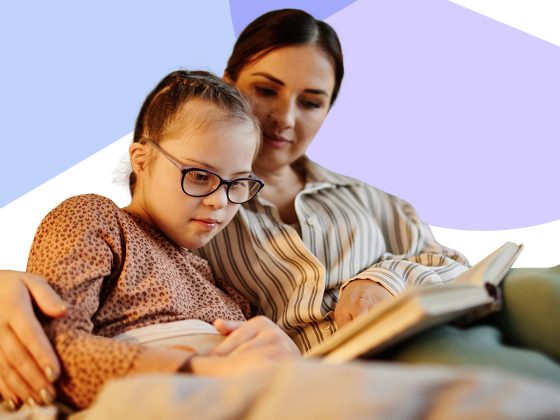
Advice on Fostering Belonging
Read on for strategies on fostering belonging among all people, whether autistic or neurotypical.
It’s important to go the extra mile to welcome everyone into the community—not just accepting everyone but offering the support that makes each person feel safe and valued. Read on for expert advice on supporting autistic children and their peers.
Belonging is more than simply being accepted into a community of friends. It’s being an integral part of that community. With some thought and a little practice, everyone, both neurotypical and autistic, can feel welcome. Here are some ways to be supportive:
- Remember to listen carefully. Everyone’s brain works differently. Help each child find their best way, not your best way. Be open to learning.
- To participate fully, children need to feel comfortable, safe, and calm in their surroundings. We can all change a little to make this happen; we shouldn’t always expect the autistic child to conform. For example, if someone is bothered by fluorescent lights or the sound of a blender, honor the feeling and, if possible, help fix the problem. Imagine if you had to work with an alarm that wouldn’t stop ringing. You wouldn’t want someone telling you to simply get used to it, right?!
- Make sure everyone understands that there are many kinds of play and many ways to communicate; no one way is right. Just like other kids, Julia from Sesame Street communicates differently in different situations. She may talk, or gesture, or use her device. She may let her actions speak for her.
- Some children show they’re good listeners by facing you and making eye contact. But not everyone. For an autistic kid, listening may look different. It may involve not looking at you—or even turning away. Let the child lead; you follow.
- Accept variations and join in! Julia’s version of tag is “boing tag.” Maybe all the bouncing makes it more comfortable for her to play. Similarly, a repetitive sound may be soothing to a child, or just plain fun to say. Try it! Or perhaps you can make the sound into a song. The bottom line is that ALL communication is good. Work to provide security that encourages everyone to communicate and participate.
Autism is just another part of the enormous range of human experience. Discover the things the kids in your community have in common; respect the things that are different. It’s up to all of us to create a world in which we can all feel welcome.
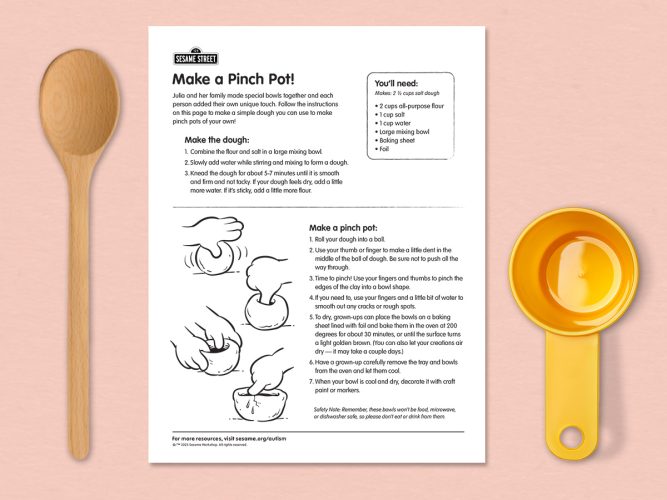
Make a Pinch Pot!
Simple craft instructions to help your family make pinch pots from homemade dough together.
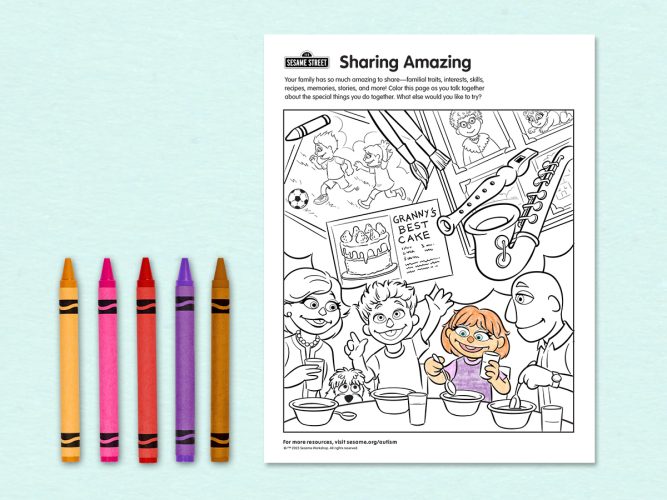
Sharing Amazing
An adult-child coloring page to spark ideas and connection.
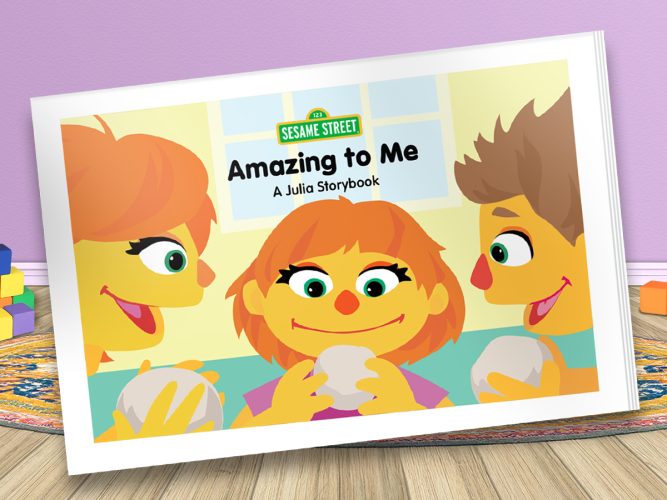
Amazing to Me
When Julia and her family do a special art activity together, Julia finds a way to add her own amazing touch!
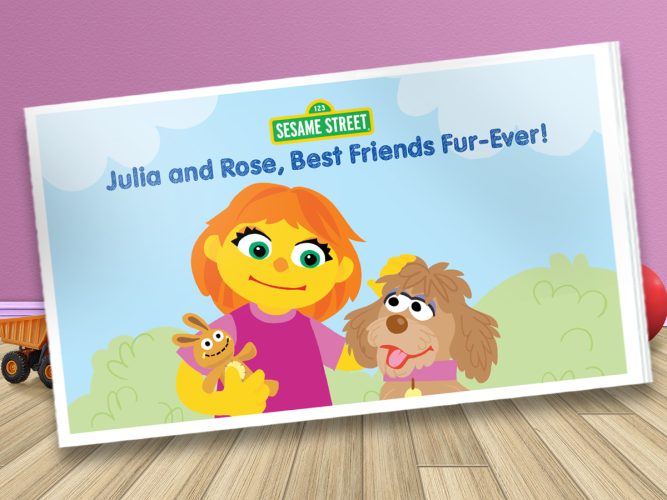
Julia and Rose – Best Friends Fur-Ever
When Sesame Street's Julia has an idea, she sees it through… with a little help from her family. This social storybook for autistic children models what’s possible!
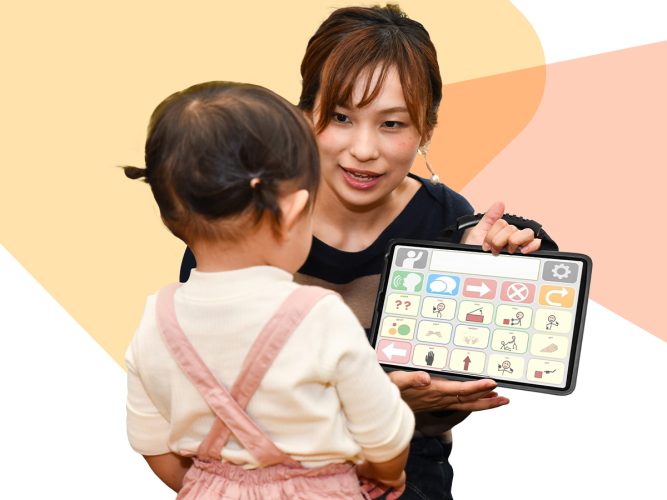
Exploring the Amazing in Autistic Children: A Conversation with Camille Proctor, Founder of The Color of Autism Foundation
An article to help parents discover and support their autistic child’s unique perspective and personality
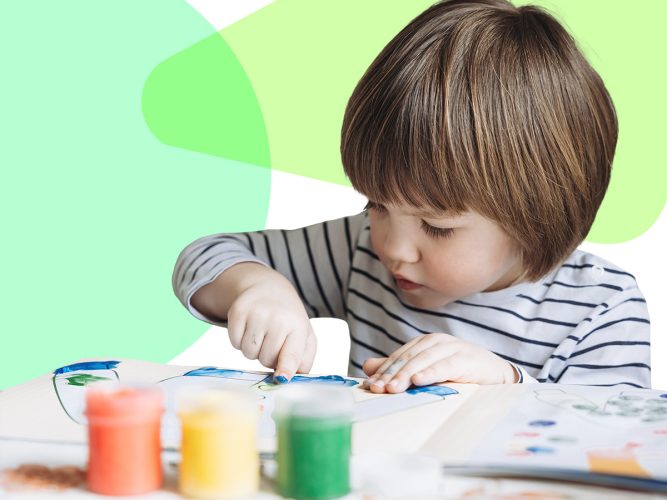
Creative, Talented, Amazing: A Conversation with Anna Wang, Co-founder of FCSN, about fostering autistic children’s talents
An article to help parents foster creative exploration and expression in their autistic child.
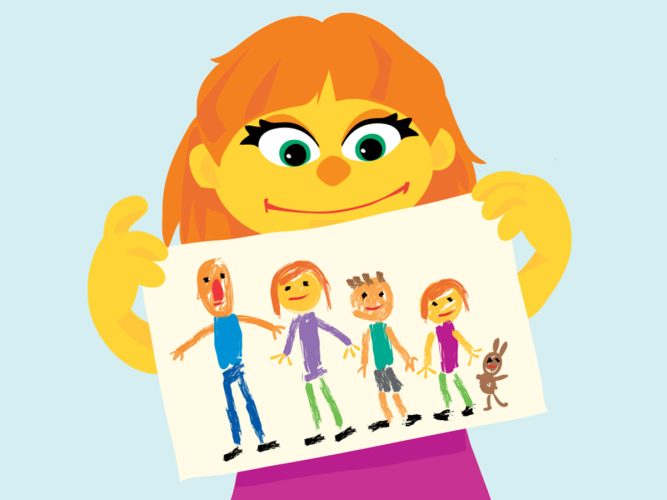
Autism and the Arts: A Conversation on Creativity and Community
